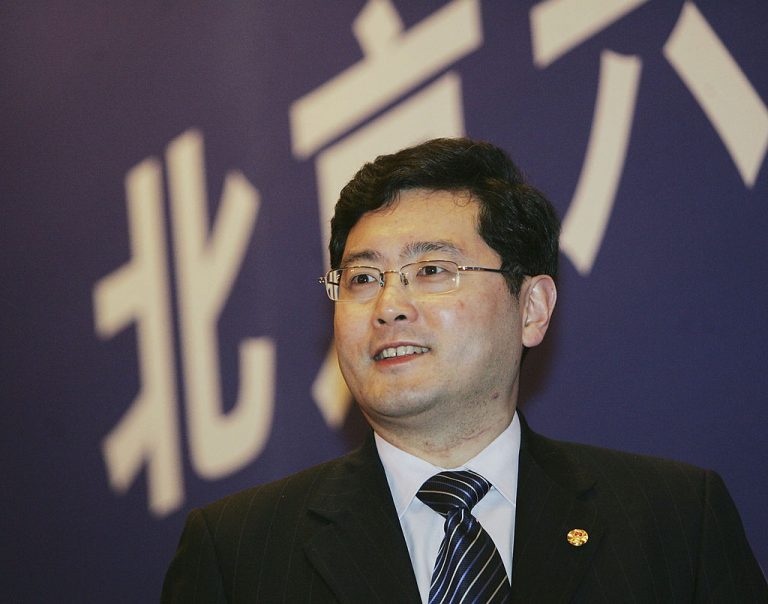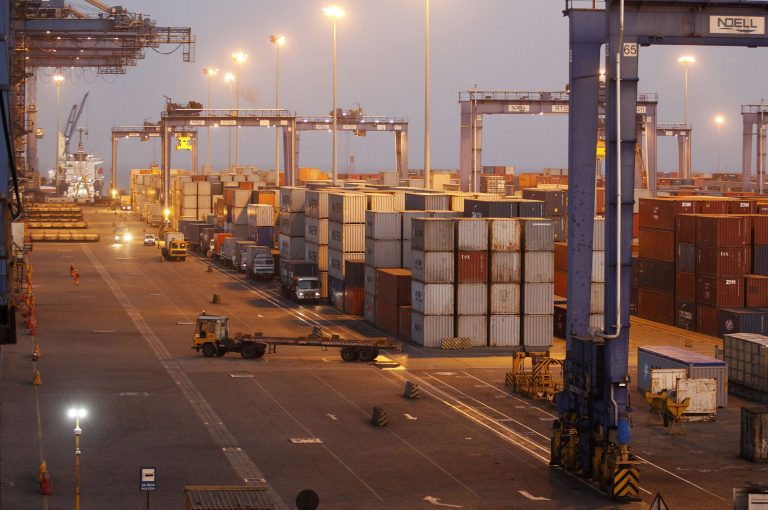In his first major speech since becoming China’s ambassador to the U.S., Qin Gang had some harsh words for Washington. He criticized the government’s actions and demanded that US leadership not cross Beijing’s red lines. Qin, known for his aggressive attitude, warned the United States of “disastrous consequences” should it attempt to suppress communist China using a “Cold War playbook.” He was speaking via a video link at the National Committee on U.S.-China Relations.
Qin pointed out that the economies of the United States and China are so “deeply integrated” that they “cannot be cut off” so easily. Last year, bilateral trade reached $580 billion, supporting 2.6 million American jobs. The minister insisted that Washington was looking at communist China “as its rival and imaginary enemy” and warned against equating it with the Soviet Union.
“China is not the Soviet Union. The Soviet Union’s collapse was its own making. The Communist Party of the Soviet Union had been rigid, corrupt, closed to the outside world, and detached from the people. It had been obsessed with arms race and external aggression. As a result, the country’s development halted. People’s lives were difficult, and they were very unhappy… China has learned from this part of history that hegemonism will only lead to decline,” Qin said in his speech.
The minister asked Washington to “exercise caution” on issues like Xinjiang, Hong Kong, Taiwan, and the South China Sea. Beijing hopes the U.S. would “respect China’s sovereignty,” stop interfering in internal affairs and avoid challenging “China’s red lines.” Taiwan has been an “inseparable part of China since ancient times”; there is no way communist China will “back down on the issue.”
Qin went on to accuse Washington of engaging in “political manipulation” of the COVID-19 origin topic rather than seeing the pandemic as its “real enemy.” He blamed the U.S. for using state power to “bring down” Huawei. The minister also criticized the U.S. Congress for trying to pass the EAGLES Act and the Competition Act of 2021. These two bills are aimed at maintaining America’s leadership position in the world, which contrasts communist China’s interests.
Success
You are now signed up for our newsletter
Success
Check your email to complete sign up
“China is committed to peaceful development and a community with a shared future for mankind,” Qin tweeted after the National Committee meeting.
Qin’s speech was in line with his “wolf warrior” style of diplomacy that is more and more defining the country’s approach towards the United States. During his tenure as the Foreign Ministry spokesperson, Qin had no qualms mocking members of the press.
Though Qin took a measured approach in his initial days after becoming ambassador, in July, his latest talk at the Nation Committee suggests that “he will continue to deploy a bare-knuckle style of diplomatic engagement that has curdled recent high-level bilateral meetings in Anchorage and the Chinese port city of Tianjin into vitriolic standoffs,” says a Politico report.
The Anchorage meeting in March and Tianjin meeting in July both ended with the Biden administration looking weak. Chinese officials criticized America on a range of issues while characterizing the communist regime as a victim of Washington’s policies.
Climate ‘cooperation‘
Beijing continued its “wolf warrior” approach during the meeting between U.S. climate envoy John Kerry and Chinese foreign minister Wang Yi. Kerry visited communist China as part of his Asia trip focusing on climate change. He visited Japan prior to arriving in China on Aug. 31. Wang and Kerry held a virtual meeting on climate change issues on Sept. 1.
Wang blamed Washington for the deteriorating bilateral relationship. He asked Kerry to respond to the “two lists” and “three bottom lines” that Beijing had handed over to U.S. Deputy Secretary of State, Wendy Sherman, during the Tianjin meeting. The communist regime had asked the Biden administration to revoke sanctions on CCP officials who were found to have committed human rights abuses, to stop interfering in matters involving Tibet, Hong Kong, and Xinjiang.
“Wang Yi said… The U.S. side wants the climate change cooperation to be an ‘oasis’ of China-U.S. relations. However, if the oasis is all surrounded by deserts, then sooner or later, the ‘oasis’ will be desertified. China-U.S. cooperation on climate change cannot be divorced from the overall situation of China-U.S. relations. The United States should work with China to meet each other halfway and take positive actions to bring China-U.S. relations back on track,” a report stated by the Chinese foreign affairs ministry.
Representative Michael McCaul, the ranking Republican on the House Foreign Affairs Committee, had earlier warned Kerry not to tie up America’s energy needs with communist China. Earlier this year, the committee had found that Chinese supply chains for solar panels were using forced labor. The Biden administration’s own report on supply chains had highlighted China’s unfair trade practices.
“Actions to address climate concerns cannot benefit forced labor and cannot link our energy needs and supply chains to the PRC, nor should Special Envoy Kerry rely on the word of a genocidal regime with a history of ignoring international agreements,” McCaul said in a statement.







